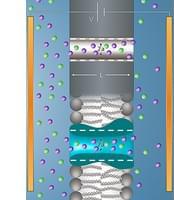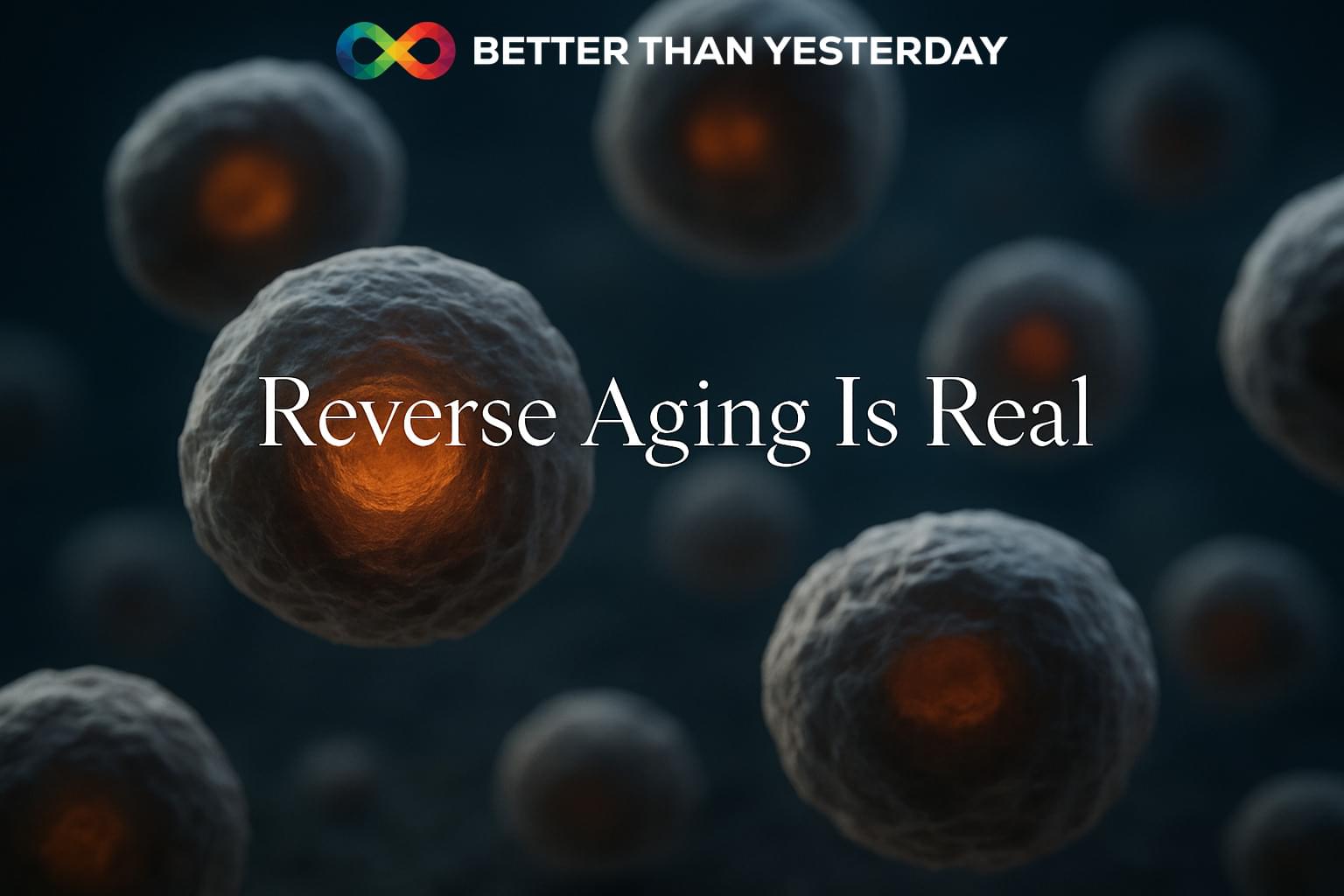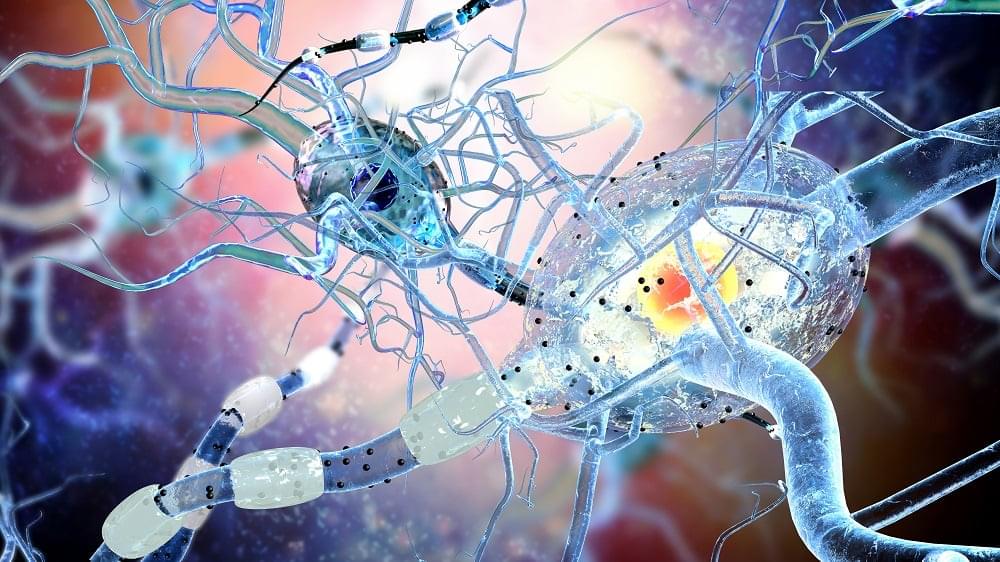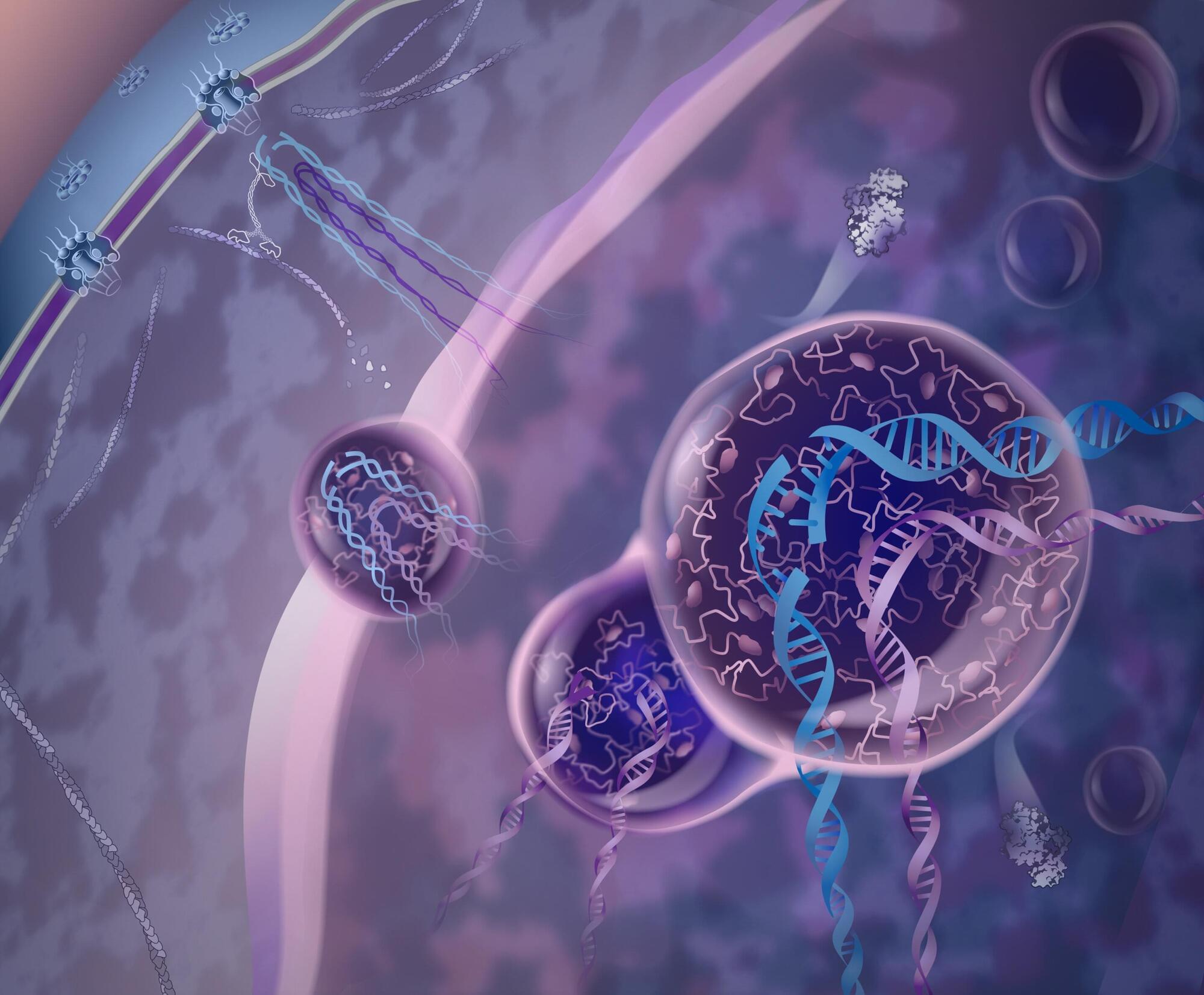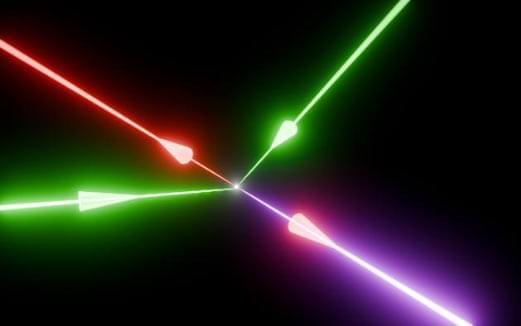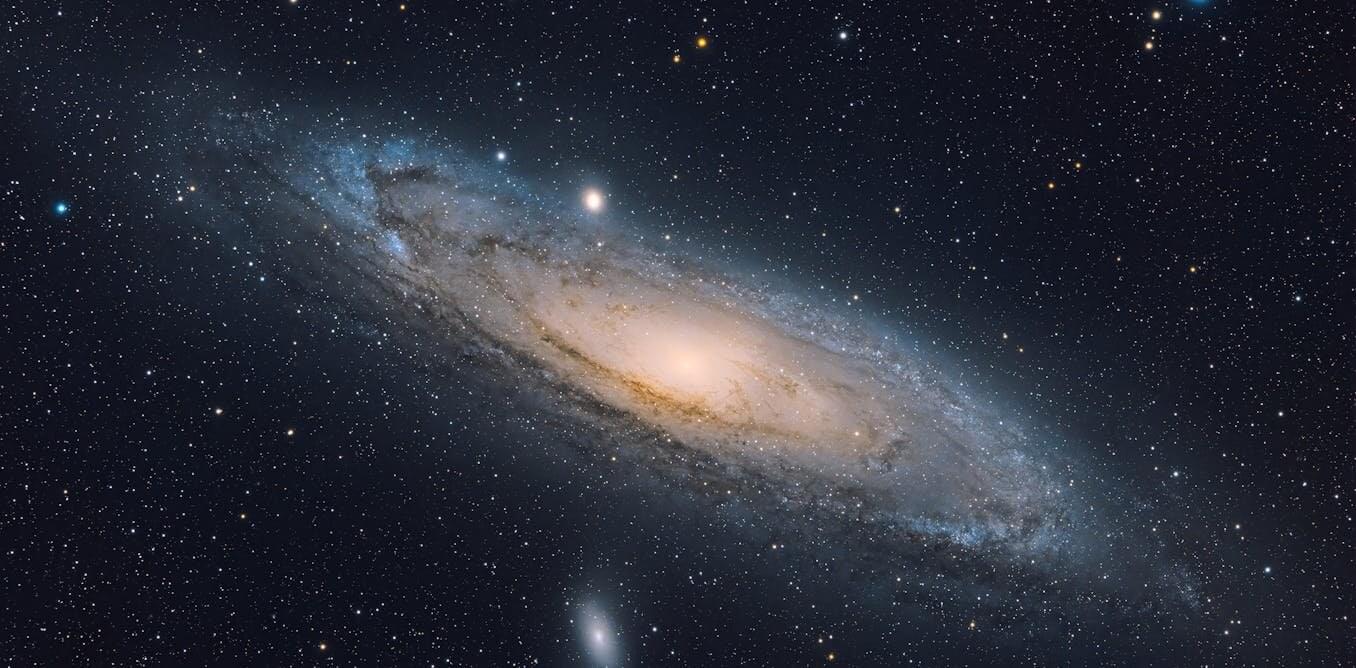When DNA breaks inside the cell, it can spell disaster, especially if the damage occurs in areas of the genome that are difficult to repair. Now, scientists Irene Chiolo and Chiara Merigliano at the USC Dornsife College of Letters, Arts and Sciences have discovered that a protein called Nup98, long known for helping traffic molecules in and out of the cell’s nucleus, plays another surprising role: guiding the cell’s most delicate repairs and reducing the risk of genetic mistakes that can lead to cancer. Their findings were published in Molecular Cell.
With support from the National Institutes of Health, the National Science Foundation, and the American Cancer Society, the researchers revealed that Nup98 forms droplet-like structures deep inside the nucleus. These “condensates” act as protective bubbles around broken strands of DNA in areas called heterochromatin—zones where the genetic material is so tightly packed that making accurate repairs is especially challenging.
Heterochromatin—a major focus of Chiolo’s research—is filled with repeated DNA sequences, making it easy for the cell to confuse one stretch for another. Nup98’s droplets help lift the damaged section out of that dense zone and create a safer space where it can be repaired accurately, reducing the chance of genetic mix-ups that could lead to cancer.
